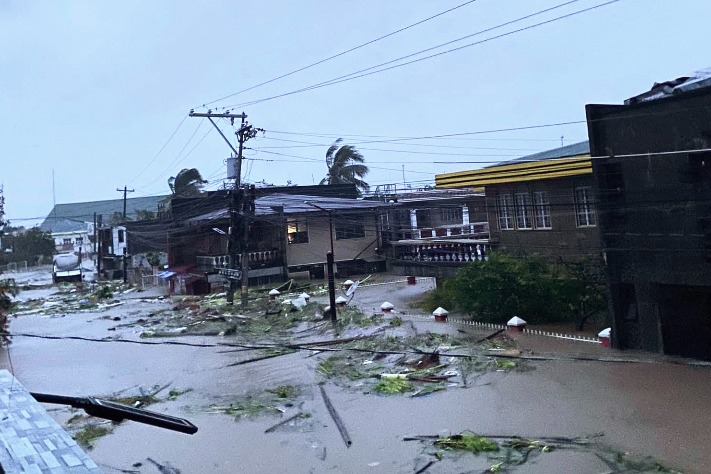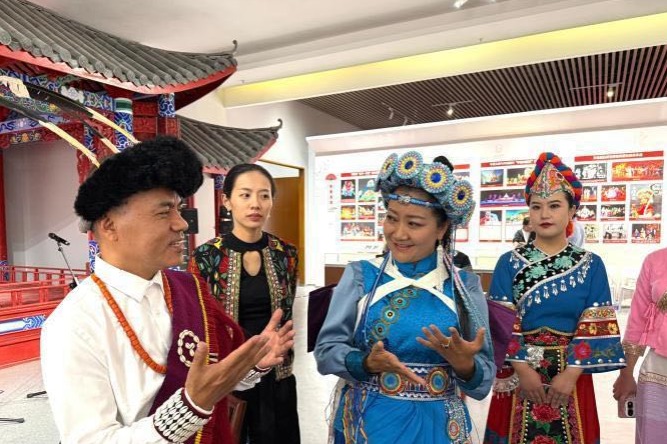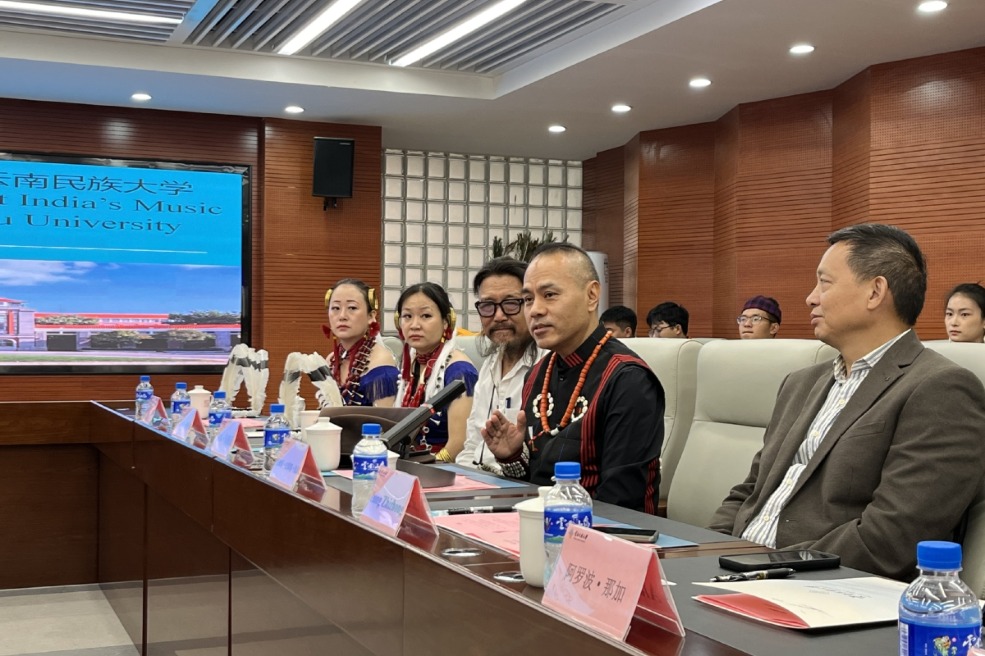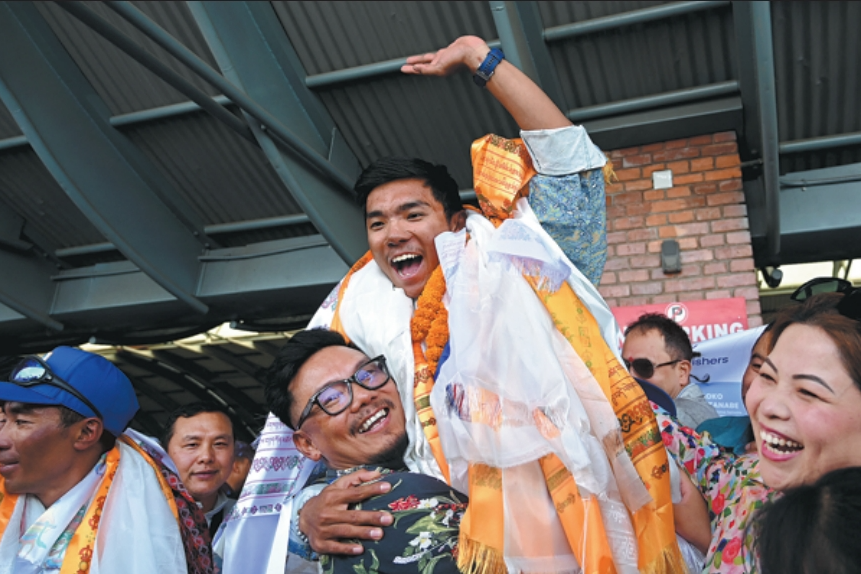Role of BRI in human rights progress hailed
Initiative aims at addressing poverty eradication across globe, expert says


For Stephen Brawer, chairman of the Belt and Road Institute in Sweden, China's Belt and Road Initiative is contributing to the human rights development in the world.
He told China Daily on the sidelines of the 2024 China-Europe Seminar on Human Rights held in Berlin on Tuesday that the BRI aims to address global poverty eradication and advance modernization, especially in infrastructure.
He said China's rapid modernization since the late 1970s means that other developing countries could have the same opportunity.
"More and more countries realize this (BRI) has the substance of providing means to raise people's living standards," Brawer said, adding more than 150 countries have joined the BRI.
He said it is absurd to talk about human rights when people's living standards are not raised and their food, healthcare and housing needs are not assured but exposed to starvation or wars.
"There is a very direct relationship between fundamental human rights and accepting and working to cooperate with the Belt and Road Initiative," he said.
Helga Zepp-LaRouche, founder and president of the Schiller Institute, a German think tank, echoed his views, citing China's impressive poverty eradication while the United States and Europe have seen rising poverty.
"There is no doubt that poverty is an enormous violation of human rights… No other country has done as much to combat poverty as China, both in China itself and through the Belt and Road Initiative in some 150 countries," she said.
The daylong seminar in Berlin drew more than 60 mostly Chinese and European experts to discuss a wide range of issues relating to human rights, such as economic equality, social rights, digital technology and human rights, climate change and human rights. Experts came from countries such as Germany, the United Kingdom, Sweden, France, Italy, Spain, Portugal, Ireland, Switzerland, Croatia, Bulgaria, Romania, Czech Republic, Turkiye, the US and South Africa.
Ma Huaide, vice-president of China Society for Human Rights Studies and president of China University of Political Science and Law, in his address, said how to protect new and emerging rights has become a new subject in the global human rights development.
"Faced with the fresh challenges posed by the new and emerging rights issues, nations should join hands to provide solutions for the global protection of these emerging rights," he said.
Jure Zovko, president of the International Academy for the Philosophy of the Sciences and a professor of philosophy at the University of Zadar, Croatia, called for a "dialogue of different civilizations" on human rights to learn from each other.
Deep concerns
Experts voiced deep concerns over wars and conflicts across the world today.
Alfred-Maurice de Zayas, a former independent expert for the United Nations Human Rights Council, said peace is the foundation for all the rights.
"Without peace, there is no chance of achieving sustainable development," he said.
He said that peace does not just mean the end of war, but all countries should work together to ensure a democratic, fair and just international order and to uproot the cause of conflicts and ensure human rights for all.
Fabio Marcelli, former director of the Institute of International Legal Studies at the National Research Council, Italy, rejected the argument that war is a means to achieving human rights.
"This is terrible. We must find another path and solution because war cannot be a means to achieving human rights. It is a violation of human rights and destruction of peace, and we must oppose wars," he said.
Michael Borchmann, a former senior official at the German federal state of Hessen, said the wars since the beginning of the century have resulted in countless deaths and led to more than 20 million people fleeing their homes.
"Waging wars is a violation of basic human rights, the right of safety," he said.
Borchmann said China has been mediating in the Russia-Ukraine conflict and the Israel-Palestine conflict, while some other big powers have been adding fuel to the fire.
Axel Hegwein, chairman of the supervisory board of the German and Chinese Culture Foundation, hailed the seminar in his closing remarks.
"Studying human rights and discussing human rights mean exchanges and learning from each other and clashing of various views," he said in German.
He said Berlin is a city of historic significance connecting the East and the West, referring to the repeated calls by experts on Tuesday against a new Cold War. Germany was divided into two parts after the World War II.
The China-Europe Seminar on Human Rights was launched in 2015 by the China Society for Human Rights Studies and it has become a platform for human rights dialogue between China and Europe.
The seminar has been held over the years in various European and Chinese cities, from Strasbourg in France, Bruges in Belgium, Amsterdam, Vienna, Rome, to Chongqing in Southwest China.
This year's seminar is hosted by the China Society for Human Rights Studies and Central South University, based in Changsha, capital of Hunan province, with the support of German and Chinese Culture Foundation, University of Munster and International Institute of Philosophy.

































